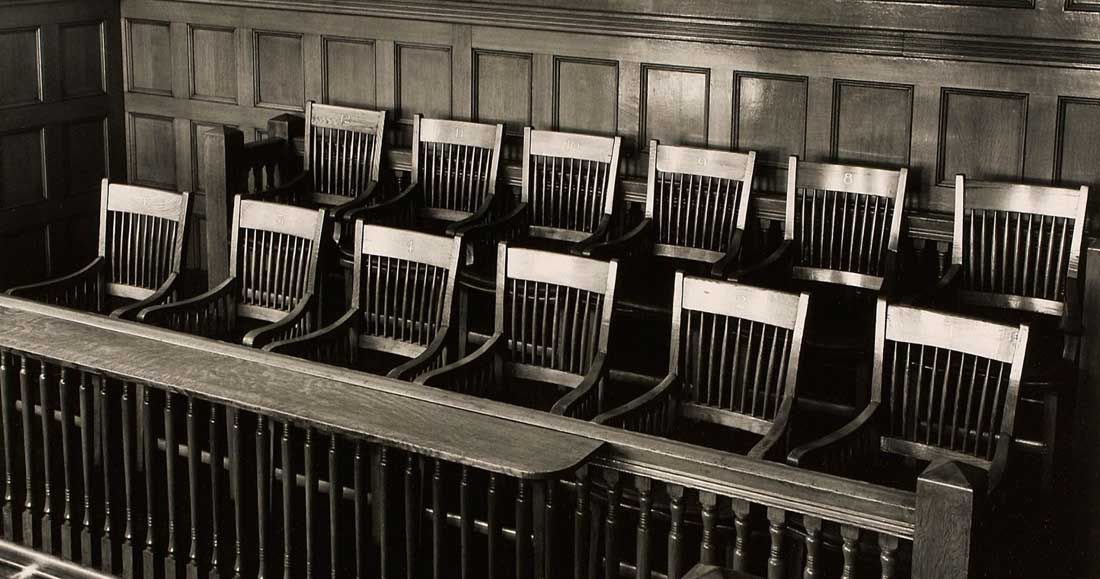The New Yorker - How Prosecutors Pick Death Penalty Juries
"I liked him better than any other Jew But No Way. Must Kick, too Risky.”

In too many communities, the fairness, reliability, and integrity of the legal system have been compromised by clear evidence of racial bias in the selection of juries. Unrepresentative juries not only exclude and marginalize communities of color, they also produce wrongful convictions and unfair sentences that disproportionately burden Black people and people of color. Our failure to remedy this longstanding problem of racial bias imperils the legitimacy of the U.S. legal system.
The US Supreme Court has repeatedly recognized that an “[e]qual opportunity to participate in the fair administration of justice is fundamental to our democratic system. The Court has insisted that eliminating racial bias in the selection of juries is necessary “to preserve the public confidence upon which our system of criminal justice depends.”
Representative juries selected without racial bias or discrimination are essential in our democracy. They are especially important because Black people are underrepresented in prosecutors’ offices and in the judiciary. More than 40% of Americans are people of color, but 95% of elected prosecutors are white. When jurors are excluded from hearing cases singularly on the basis of race, religion, ethnic background or other protected status, this violates a defendant's Sixth Amendment right to receive a fair trial.
In Alameda County, California, which includes Oakland and Berkeley, the district attorney’s office for years employed a group of prosecutors to try capital cases known as the Death Team. The New Yorker investigated the office and found newly released records revealing some members of this team worked to systematically exclude certain categories of juror, including Jewish and Black citizens, from hearing cases, and, in so doing, denied defendants their constitutional rights to a fair trial.
Excerpts from the article about the investigation are featured below.
*****
In California, death-penalty litigation often takes decades to be resolved, and five years ago Governor Gavin Newsom ordered a moratorium on executions in the state. So last year, in an effort to ease the backlog, a few old cases were referred to a federal judge, Vince Chhabria, of the Northern District of California, for possible settlement—to see if there was a way to resentence the defendants and end their litigation. One of the cases was Ernest Dykes's.
Aimee Solway, a deputy district attorney, had been hired to review old convictions, and Dykes’s case was one of her first assignments. She would need to weigh in at an upcoming settlement conference with Judge Chhabria and Dykes’s lawyers, so she had ordered the trial files. She opened a box, glanced at a few of the documents, and then turned to other tasks, including a call with Dykes’s attorneys. Later that day, she went back to the boxes—she was looking for the police reports—and in one of them she discovered a stack of index cards held together by a rubber band.
On the cards were handwritten notes, which Solway realized were comments about prospective jurors for Dykes’s trial, presumably compiled by the prosecutors. One card described an “MW”—male, white—who was a Republican and in favor of the death penalty. That didn’t seem too surprising, but a card for a Black woman read “Don’t believe she could vote D/P”—for the death penalty—and characterized her as a “Short, Fat, Troll.” A card for a forty-seven-year-old man said that he had a “Jewish background.” Another card, for a man who had a Ph.D. in physics, read “I liked him better than any other Jew But No Way,” then added, “Must Kick, too Risky.”
Solway immediately knew that some of the notes posed a serious problem. Historically, prosecutors had sought to keep certain groups of people off juries who they assumed would be less likely to vote for a conviction. That practice had denied untold numbers of Americans their constitutional right to a fair trial. To counter this, the California Supreme Court, in 1978, banned striking jurors because of their race, ethnicity, or religion. In 1986, the U.S. Supreme Court, in Batson v. Kentucky, prohibited prosecutors nationwide from eliminating jurors based on their race. “The harm,” the Court found, “extends beyond that inflicted on the defendant and the excluded juror to touch the entire community,” and the result is to “undermine public confidence in the fairness of our system of justice.”
Solway knew that, if prosecutors in Dykes’s case had discriminated against potential jurors, his constitutional rights had been violated. She also knew that the remedy for that sort of violation was to reverse the conviction. Given that possibility, another prosecutor might have put the index cards back in the box and tried to forget about them. Solway did not. She had previously worked at the California Appellate Project in San Francisco, a nonprofit organization that helps lawyers representing people on death row. But, because she was only a few weeks into her job at the D.A.’s office, she wasn’t sure how her bosses would react to her discovery. She later recalled that she “sort of sheepishly” walked into her supervisor’s office to show her the cards—and to say that she thought they should be handed over to Dykes’s lawyers. Solway remembers telling her, “I don’t think we can settle this case without disclosing this evidence.”
****
You can read the full article into the investigation, "An Investigation Into How Prosecutors Picked Death Penalty Juries" by Jennifer Gonnerman, a staff writer with The New Yorker.










